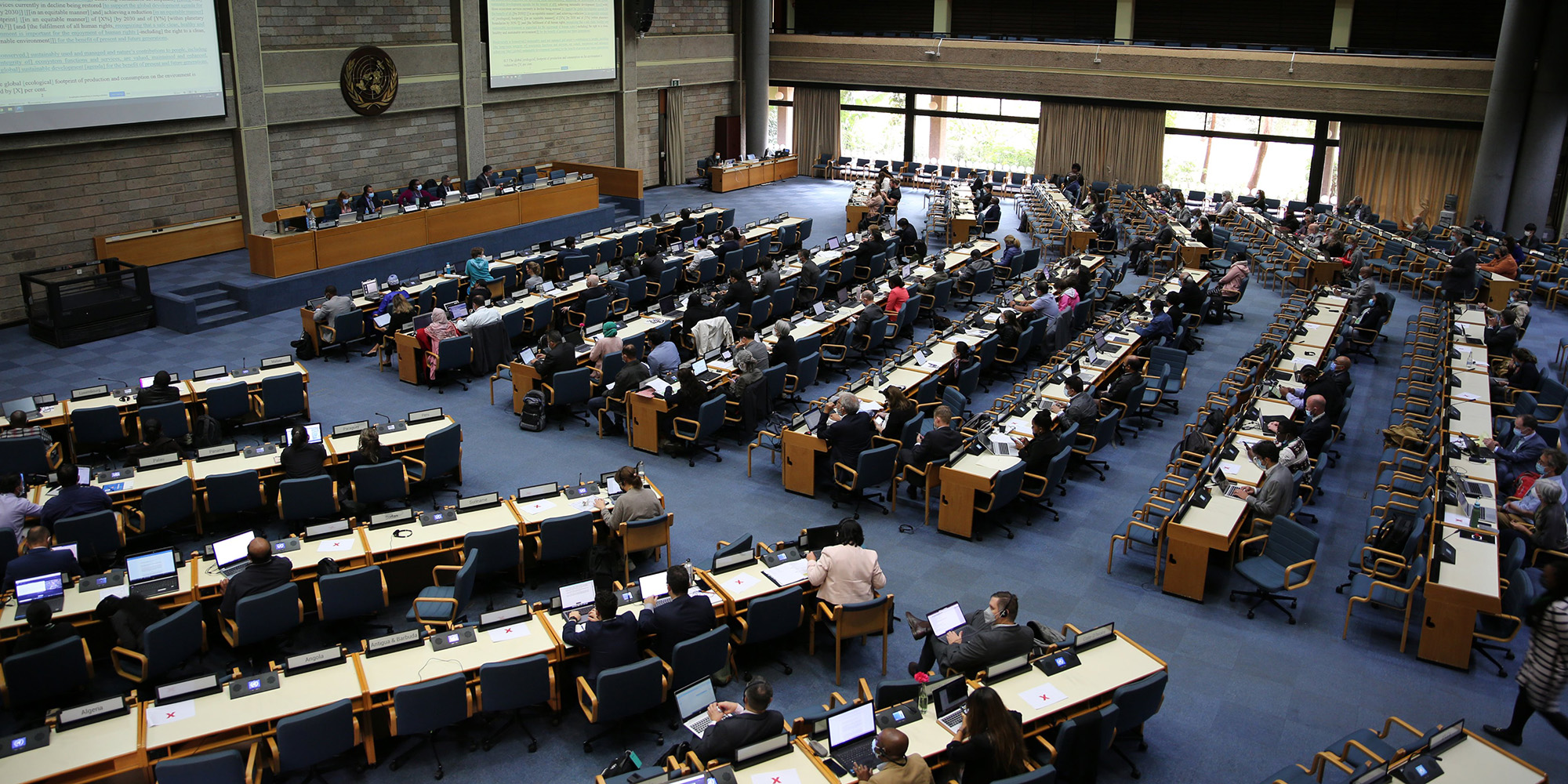Biodiversity loss, together with climate change and pollution, comprise the triple planetary crisis eroding economies, endangering livelihoods and threatening the survival of millions of people worldwide.
Largely the result of human activity, biodiversity loss is facing critical levels globally, with the Intergovernmental Science Policy Platform on Biodiversity and Ecosystem Services reporting in 2019 that an average of around 25% of species in assessed animal and plant groups are threatened, suggesting that about 1 million species already face extinction, many within decades, unless action is taken to reduce the intensity of drivers of biodiversity loss.
There is consequently no doubt that governments need to take urgent action to address this crisis, and that the window of opportunity within which to meaningfully do so is small.
To this end, governments are in the process of negotiating the post-2020 Global Biodiversity Framework (GBF), which defines targets and pathways for the conservation and sustainable use of biodiversity for the next decade and beyond.
The post-2020 GBF, viewed by many (perhaps optimistically) as the “Paris Agreement for Nature”, hopes to achieve what previous global plans to tackle biodiversity loss could not.
However, negotiations held in Nairobi at the end of June – where it was hoped the draft text of the post-2020 GBF would be finalised – were crippled by semantic squabbling, with critical commitments to firm targets to reduce biodiversity loss decidedly lacking.
The Nairobi negotiations presented the last opportunity to refine the post-2020 GBF ahead of COP15 in Montreal in December, at which it is to be adopted.
Despite this, much time was spent wordsmithing the text of the draft goals and targets in the absence of any real urgency and leadership by governments, leaving the chance of securing a transformative global agreement with meaningful, agreed goals for biodiversity hanging in the balance.
Out of 22 proposed targets, the text of 20 remains inconclusive and, in many instances, woefully inadequate.
Among many shortfalls, parties were unable to reach agreement on crucial percentage targets for the restoration and conservation of important ecosystems, potentially undermining global initiatives to secure 30% of Earth’s land and ocean area in protected areas by 2030.
Certain parties also proposed delaying the goal of reducing extinctions by 2030 to 2050, which is a significant regression. Targets aimed at minimising the impact of climate change on biodiversity could also not be agreed, with debates around terms such as “nature-based solutions” and “ecosystem-based approaches” occupying much airtime.
In addition, while most parties agreed that an increase in financial flows to developing countries is necessary to realise the relevant goals and targets, there was significant disagreement as to what the source of this finance would be and how much it would include.
 The fourth meeting of the Working Group of the Biodiversity Convention, which considered a new Global Biodiversity Framework, took place in Nairobi, Kenya, from 21 June to 26 June 2022. (Photo: Twitter / Earth Negotiations Bulletin
The fourth meeting of the Working Group of the Biodiversity Convention, which considered a new Global Biodiversity Framework, took place in Nairobi, Kenya, from 21 June to 26 June 2022. (Photo: Twitter / Earth Negotiations Bulletin
@IISD_ENB)
Despite many deficiencies, the meeting in Nairobi was not entirely without progress being made, with a few notable successes.
Overall, the text of two targets was agreed, namely Target 12 (increasing biodiversity and access to biodiversity within cities) and Target 19.2 (which focuses on scientific research, capacity building and technology transfer through global cooperation, particularly to help developing countries to meet their needs and access innovation).
A new Target 22 was also included, which expressly provides for the inclusion and participation of women and girls at all levels of policymaking, implementation and decision-making related to biodiversity; and the recognition of the rights and roles of indigenous peoples and local communities has been expressly included in Target 1, although the remaining Targets are littered with inconclusive language as to the nature and extent of this role.
Why does all this matter? A decade ago, parties to the Convention on Biological Diversity (CBD) came together to formulate a strategic plan for protecting and conserving natural systems for 2011 to 2020.
The plan comprised 20 targets – the Aichi Targets – which aimed to address the causes of biodiversity loss and reduce pressures on ecosystems and their services, improving the status of biodiversity globally and enhancing its benefits for all.
The plan failed rather spectacularly, with only six of the 20 targets having been partially achieved. This is all the more concerning given the catastrophic levels biodiversity loss is reaching globally.
South Africans should be particularly concerned given our country’s status as one of only 17 megadiverse countries (referring to a handful of countries that harbour the majority of the Earth’s species, rich in biodiversity and associated indigenous knowledge).
Healthy biodiversity is essential to supporting all forms of life on Earth, including human life. We are dependent on healthy ecosystems for the goods and services they provide, as well as for nature-based solutions to many of the most critical environmental, economic and social challenges that we face as human society, including climate change, sustainable development, health, and water and food security.
A collapse in ecosystem services, such as pollination, could result in a $2.7-trillion decline in global GDP by 2030. This collapse will affect all countries, with impacts most pronounced in developing countries, least developed countries and small island developing states.
Despite its importance, biodiversity continues to be lost at an alarming rate.
South Africa’s own biodiversity is at present greatly endangered, with National Red List assessments indicating that 10% of South Africa’s birds and frogs, 20% of our mammals and 13% of our plants are threatened.
Taking stock of the state of biodiversity globally, one can’t but feel disheartened that the Nairobi negotiations were so unsuccessful. We urgently need to fill the vacuum left by the expiration of the CBD’s strategic plan and the unfulfilled Aichi Targets.
What’s more, we need to avoid repeating the failure of the Aichi targets by ensuring the post-2020 GBF includes firm, measurable targets to address drivers of biodiversity loss and a strong implementation mechanism that allows countries to review progress against targets and increase action over time.
Linked to this is the critical role of indigenous peoples and local communities who comprise about 6% of the global population and inhabit about 85% of the areas proposed for biodiversity conservation. Their important role in, and contribution to, ecosystem protection, conservation and restoration cannot be gainsaid.
With one final round of emergency negotiations scheduled ahead of COP15 in December 2022, we can only hope that governments will act with the requisite urgency, ambition, leadership and cooperation to ensure that negotiations are successful and a robust post-2020 GBF – with meaningful targets to reduce biodiversity loss – is adopted. DM
Kate Handley is an environmental attorney and Executive Director of the Biodiversity Law Centre, a new non-profit law clinic that seeks to use the law to reverse the catastrophic decline of biological diversity in southern Africa.




 The fourth meeting of the Working Group of the Biodiversity Convention, which considered a new Global Biodiversity Framework, took place in Nairobi, Kenya, from 21 June to 26 June 2022. (Photo: Twitter / Earth Negotiations Bulletin
@IISD_ENB)
The fourth meeting of the Working Group of the Biodiversity Convention, which considered a new Global Biodiversity Framework, took place in Nairobi, Kenya, from 21 June to 26 June 2022. (Photo: Twitter / Earth Negotiations Bulletin
@IISD_ENB) 